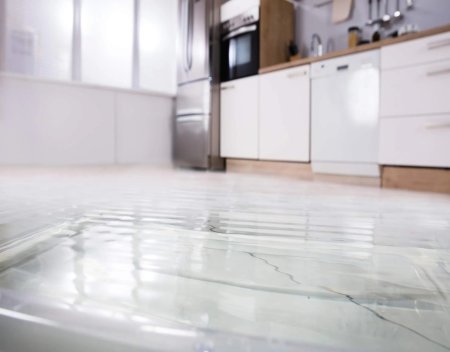Blog Categories
- Appliances Four
- Athletic Seating
- Auto Helpers
- Automated Stock Rooms
- Chocolate Four
- CuraFlo
- Damaged Goods Dating
- Flood Insurance Four
- Game Addict
- Hi Tech Pest Control
- HVAC Four
- Medical Labels Four
- Mental Health Four
- National CWS
- Promotional Ideas
- Seguros Lara Insurance
- Stem Cell Worx
- The Hidden Truth
- The Last Refuge
- The Mozilla Blog
- Video Editing Four
- Web Design Dev
- Website Development Four
- Windows Blog
hazards of water damage

Water damage can result from various sources, including floods, burst pipes, leaks, storms, and sewage backups. The hazards associated with water damage can pose significant risks to both property and health. Here are some hazards of water damage:
Structural Damage: Water can weaken structural components of buildings such as walls, floors, ceilings, and foundations. Prolonged exposure to water can lead to rotting, warping, and deterioration of wood, drywall, and other building materials, compromising the integrity of the structure.
Mold and Mildew Growth: Moisture from water damage creates ideal conditions for mold and mildew growth. Mold can spread rapidly and release spores into the air, leading to respiratory issues, allergies, and other health problems. Mold remediation may be necessary to mitigate health risks and prevent further damage.
Electrical Hazards: Water damage can pose electrical hazards, especially if water comes into contact with electrical outlets, appliances, wiring, or circuitry. This increases the risk of electrical shocks, short circuits, and fires.
Contamination: Floodwaters and sewage backups can introduce contaminants such as bacteria, viruses, chemicals, and other hazardous substances into the indoor environment. Exposure to contaminated water can lead to gastrointestinal illnesses, skin infections, and other health issues.
Slip and Fall Accidents: Wet and slippery surfaces resulting from water damage increase the risk of slip and fall accidents, which can cause injuries such as fractures, sprains, and head trauma.
Damage to Personal Property: Water can damage personal belongings such as furniture, clothing, electronics, documents, and sentimental items. Some items may be salvageable with prompt restoration efforts, but others may be irreparably damaged.
Pest Infestations: Standing water and moisture create favorable conditions for pest infestations, including insects such as mosquitoes, termites, and cockroaches, as well as rodents. Pest infestations can further damage property and pose health risks.
Secondary Damage: If water damage is not promptly addressed and properly mitigated, it can lead to secondary damage such as odors, staining, and deterioration of building materials and contents over time.
Financial Costs: Water damage can result in significant financial costs associated with property repairs, restoration, replacement of damaged belongings, mold remediation, and potential temporary relocation expenses.
Overall, water damage can have serious implications for both property and health, underscoring the importance of taking immediate action to mitigate risks and address the damage effectively.
Re Posted From: hazards of water damage

Water damage can result from various sources, including floods, burst pipes, leaks, storms, and sewage backups. The hazards associated with water damage can pose significant risks to both property and health. Here are some hazards of water damage:
Structural Damage: Water can weaken structural components of buildings such as walls, floors, ceilings, and foundations. Prolonged exposure to water can lead to rotting, warping, and deterioration of wood, drywall, and other building materials, compromising the integrity of the structure.
Mold and Mildew Growth: Moisture from water damage creates ideal conditions for mold and mildew growth. Mold can spread rapidly and release spores into the air, leading to respiratory issues, allergies, and other health problems. Mold remediation may be necessary to mitigate health risks and prevent further damage.
Electrical Hazards: Water damage can pose electrical hazards, especially if water comes into contact with electrical outlets, appliances, wiring, or circuitry. This increases the risk of electrical shocks, short circuits, and fires.
Contamination: Floodwaters and sewage backups can introduce contaminants such as bacteria, viruses, chemicals, and other hazardous substances into the indoor environment. Exposure to contaminated water can lead to gastrointestinal illnesses, skin infections, and other health issues.
Slip and Fall Accidents: Wet and slippery surfaces resulting from water damage increase the risk of slip and fall accidents, which can cause injuries such as fractures, sprains, and head trauma.
Damage to Personal Property: Water can damage personal belongings such as furniture, clothing, electronics, documents, and sentimental items. Some items may be salvageable with prompt restoration efforts, but others may be irreparably damaged.
Pest Infestations: Standing water and moisture create favorable conditions for pest infestations, including insects such as mosquitoes, termites, and cockroaches, as well as rodents. Pest infestations can further damage property and pose health risks.
Secondary Damage: If water damage is not promptly addressed and properly mitigated, it can lead to secondary damage such as odors, staining, and deterioration of building materials and contents over time.
Financial Costs: Water damage can result in significant financial costs associated with property repairs, restoration, replacement of damaged belongings, mold remediation, and potential temporary relocation expenses.
Overall, water damage can have serious implications for both property and health, underscoring the importance of taking immediate action to mitigate risks and address the damage effectively.
Re Posted From: hazards of water damage

